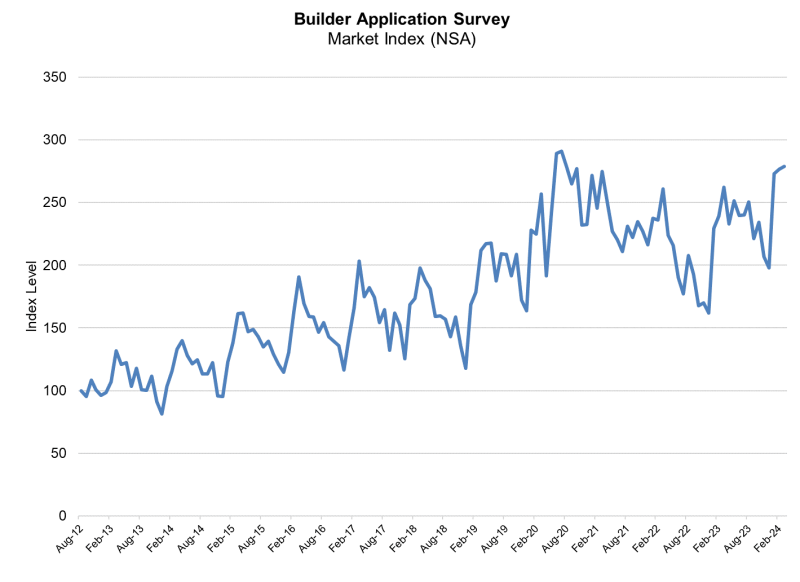Advertisement
Arizona industry appointments update - 11/29/2006
Fishing for premium customers: Increasing your success with lead generation programsAllen Johnsonlead generation programs, lead sources
Plan to do some fishing this summer? How do you know where the
fish will be biting? If I could give you a list of lakes and rivers
where your odds for success would be better - where I knew there
were more than twice the number of trout and they were twice the
size - would you be interested? If I could tell you which bait or
lures were most effective, would you want to know?
In today's competitive market, mortgage professionals who rely
on old, standard, hit-or-miss techniques for finding customers
could end up with a relatively small catch (or, even worse,
empty-handed). Utilizing a system to generate qualified leads is
essential in ensuring your success.
In the past, mortgage professionals have located potential
customers by sitting at trade and home shows, networking through
civic organizations and community groups and purchasing mailing
lists. But today's lead generation programs allow you to identify
and qualify a much more targeted audience and then follow up with a
systematic marketing approach so that you can reel in these
pre-qualified customers.
Reliable lead generation programs are fairly new to the mortgage
marketplace. Here's how they work. You start by defining your
target market. Let's say you want to focus on customers who earn
$100,000 a year, have no more than $10,000 in credit card debt and
maintain a credit score of 620. This puts them somewhere in the
middle, in terms of credit scoring. (Additional parameters, like
property type, residence location and number of children can be
included as well.) Once you receive your list of qualified leads,
which is based on your defined target and has been scrubbed against
the National Do Not Call Registry, you're ready to drop a few lines
in the water. You'll want to contact these potential customers by
phone or send out a targeted, creative, direct mail piece and work
with a call center and Web site to track responses.
"We began purchasing leads for our outbound telemarketing
campaigns in February 2006," stated Jayme McRee, vice president of
marketing and corporate training for Guardian Loan
Company. A family-owned and family-operated direct lender,
Guardian has been providing financial services to homeowners since
1932 and has operated its own call center since 2000.
"In the past, our telemarketing efforts were more of a wide-net
operation," McRee explained. "But these days, we need to be more
aware of the sensitivities associated with calling homeowners. Our
goal now is to find and call only people who really need our help -
those who specifically would benefit from our services.
"Recently, we worked with a lead generation program to refine
and target our lists," McRee continued. "Using these new lists,
we're launching a pilot program where only pre-qualified homeowners
are contacted and where only highly trained agents speak to them
about their options."
McRee concluded, "While the new lists are more expensive,
overall costs should be lower, which will result in greater return
on investment for the company and better customer relations."
Lead generation can be a win-win situation for both the mortgage
professional and customer. You're supplying information on products
and services that consumers need to make informed financial
decisions. In fact, with the changes in interest rates, this is an
ideal time for mortgage professionals to step up their use of lead
generation to help consumers refinance a second mortgage or get out
from under a variable rate and into something more secure.
Karl Rabel, president of Icon Financial, a mortgage broker
licensed in the state of Washington, placed an order for a
pre-qualified list of leads just recently. "We focus primarily on
customers who are interested in refinancing," stated Rabel. "We
wanted to find a source for leads that could supply really detailed
information. The program was outstanding in its ability to
fine-tune data to suit our needs."
If you don't have a lead generation program in place yet, you'll
want to consider the following features when you're ready to get on
board.
Defining the target
A good lead generation program should assist you in identifying
your target audience through a set of criteria, including income,
credit score band, amount of credit card debt and geographic area,
in addition to other characteristics, like property type, number of
children, etc. You'll want to work with a program that can help you
whittle down your list of potential customers so that you spend
less time contacting unqualified prospects with poor credit scores,
an excessive amount of debt, weak credit histories or income levels
that would make refinancing or obtaining a mortgage difficult.
Instead, you'll be focusing your efforts on solid, qualified
leads.
Is your data fresh?
Out-of-date information isn't going to be much help. Typically, the
data you obtain from a mail house can be anywhere from four to six
months old. You don't want to waste valuable time, energy and
dollars with a list that isn't current. You want to work with a
lead generation program that can deliver the freshest data
possible. Credit scores are constantly changing; people pay down
debt or make new purchases all of the time. Employment can shift
rapidly as well. A list that is much more than 30 days old isn't
going to be worth your while.
Privacy issues
Make sure that any data provided by your lead generation program
will be scrubbed against the National Do Not Call Registry. There
isn't any point in running a risk and working with a list that
hasn't been processed accordingly. You want to be able to contact
these potential leads by phone and mail.
Creativity in print
Strong, creative print materials are a crucial component in hooking
a potential customer. Even with a great list, you'll need to use
the right bait. Be sure your lead generation program offers
marketing expertise and refined promotional materials, including a
direct-mail piece that is compliant with all FCRA guidelines and
steers responses to a call center and Web site.
Is anyone home?
Potential customers who call a mortgage professional usually do so
only once. You'll want to work with a lead generation program that
has a 24/7 call center. Don't forgo this critical component. If
your pre-qualified lead makes that call and does not get anyone
live, he will move on. A conservative estimate suggests that
mortgage professionals can lose 20-40 percent of their responses
without a live call center.
Does a good lead generation program mean that you can stop
working with some of the other tools you've used to connect with
customers in the past? Although lead generation programs offer you
an effective method to locate potential clients, you will need to
continue to use a blend of techniques to maintain your business,
build your brand and grow your market share.
Paid advertising in newspapers, magazines, trade journals and
Web sites are reliable tools to attract business. A good public
relations plan (including news releases, a regular column in a
newspaper or trade magazine, attendance at trade shows or active
membership in community and civic organizations) always pays
dividends. You also will want to maintain your own database, which
should include real estate agents, business associates, attorneys
and past customers - anyone who may be able to steer business your
way. Then you'll want to stay in touch with this list of contacts
with a regular newsletter, brochures, reports, invitations,
reminders or other promotional materials.
It comes down to this: The more lines you have in the water, the
better your chances are of catching fish. If you take some time to
find out where the premium lakes are located, your odds of a
successful fishing trip will improve significantly. Lead generation
programs help you find out where the fish are jumping, and fishing
is always more fun when you go home with a good catch.
Allen Johnson is vice president of sales and marketing for
Credit Plus Inc., a credit
information services provider based in Salisbury, Md. He can be
reached by e-mail at [email protected].
About the author





